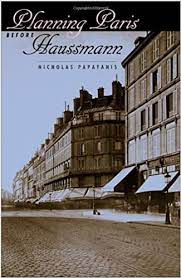
2004 | 336 Pages | ISBN: 0801879302 | PDF | 27 MB
Long before Baron Haussmann remade Paris, several generations of intellectuals, planners, architects, engineers, and politicians envisioned a radical transformation of medieval Paris into a modern city that would be beautiful, rational, sanitary, and responsive to the needs of commerce and industry. Historian Nicholas Papayanis examines the emergence and evolution of modern urban planning in Paris between the end of the eighteenth and the middle of the nineteenth century, focusing on the principles and concerns that informed competing plans for the city. Papayanis examines three major planning traditions in this period: functionalist, Saint-Simonian, and Fourierist. The latter two drew their inspiration from the utopian-socialist philosophers, while the former comprised practical proposals by civil engineers and administrators. Regardless of their perspective, the thinkers within each tradition critiqued the disorder, inefficiency, and social misery of Paris as it was, imagining a new city that balanced commerce, public health and safety, circulation, and social order. Ultimately, Papayanis finds, this vision of the modern industrial and commercial city lent itself to the creation of a hegemonic order that suited the demands of the state, capitalism, and the middle-class urbanite, often at the expense of other interests. Planning Paris before Haussmann uncovers the intellectual ferment about city planning and urban reform that constituted a powerful intellectual and theoretical foundation for Haussmannization and for modern urban planning. (2005)
Download:
http://usafiles.net/155J/Planning_Paris_before_Haussmann.pdf